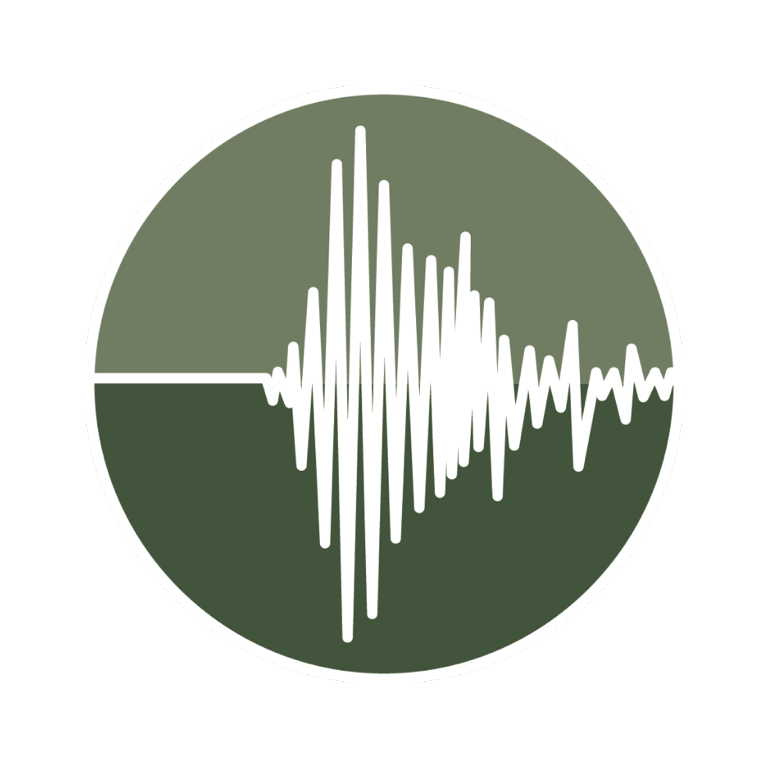SEISMOLOGY
Seismology is the scientific study of earthquakes and the propagation of seismic waves through the Earth and other planetary bodies. This discipline enables researchers to model earthquake sources, probe the internal structure of the Earth—from near surface to the inner core—and assess seismic hazard and risks. Given Europe’s history with destructive earthquakes, advancing seismological research is critical for hazard assessment, risk mitigation, and the protection of communities.
Infrastructure and Collaborative Framework
Seismology in Europe is firmly rooted in national and regional observatories in charge of detecting local seismicity and providing earthquake information to civil protection agencies and the public. The Thematic Core Service (TCS) for Seismology, integrated within the European Plate Observing System (EPOS), provides standardized, FAIR data services across Europe by coordinating with key European infrastructures:
● ORFEUS (Observatories & Research Facilities for European Seismology): promotes seismology in the Euro-Mediterranean area through the collection, archival and distribution of seismic waveform data, metadata, and closely related services and products.
● EMSC (European-Mediterranean Seismological Centre): coordinates the integration and the access to seismological products and information about the seismic events in the greater European region and beyond.
● EFEHR (European Facilities for Earthquake Hazard and Risk): provides access to data, models, tools, and expertise to as sess seismic hazard and risk in Europe and beyond.
Applications and Societal Impact
TCS Seismology actively supports societal benefit through a range of targeted initiatives:
● Seismic hazard and risk assessment for disaster preparedness strategies.
● Scientific innovation and knowledge advancement through open access to harmonized datasets.
● Evidence – Based Decision-making for informed strategies.
● International Collaboration and Funding attraction through a network of global partners.
● Capacity Building and Community Engagement through regular workshops, training sessions, community grants to promote knowledge exchange, the professional development of emerging geoscientists, and their engagement with EPOS and its services.
Tools and Platforms
Seismology relies on integrated access to waveform data, seismic hazard models, and tools. Platforms like ORFEUS, EMSC, and EFEHR offer web services (largely integrated in the EPOS Data Access Portal), web interfaces, apps, and contribute to harmonizing data services and enabling open access to scientific products, supporting multidisciplinary research and innovation.
Future Goals and Aspirations
TCS Seismology is dedicated to advancing earthquake science through robust data governance and sustainable, global data-sharing initiatives. With next-generation monitoring—integrating state-of- the-art sensor technologies, real-time analytics, and advanced big data archiving and processing solutions—it will efficiently manage the vast volumes of seismic data generated by modern networks. TCS Seismology also promotes community engagement via targeted outreach,comprehensive training programs, and community grants, thereby empowering researchers and reinforcing societal resilience.
TCS - SEISMOLOGY
Seismology is the scientific study of earthquakes and the propagation of seismic waves through the Earth and other planetary bodies. This discipline enables researchers to model earthquake sources, probe the internal structure of the Earth—from near surface to the inner core—and assess seismic hazard and risks. Given Europe’s history with destructive earthquakes, advancing seismological research is critical for hazard assessment, risk mitigation, and the protection of communities.
Infrastructure and Collaborative Framework
Seismology in Europe is firmly rooted in national and regional observatories in charge of detecting local seismicity and providing earthquake information to civil protection agencies and the public. The Thematic Core Service (TCS) for Seismology, integrated within the European Plate Observing System (EPOS), provides standardized, FAIR data services across Europe by coordinating with key European infrastructures:>
● ORFEUS (Observatories & Research Facilities for European Seismology): promotes seismology in the Euro-Mediterranean area through the collection, archival and distribution of seismic waveform data, metadata, and closely related services and products.
● EMSC (European-Mediterranean Seismological Centre): coordinates the integration and the access to seismological products and information about the seismic events in the greater European region and beyond.
● EFEHR (European Facilities for Earthquake Hazard and Risk): provides access to data, models, tools, and expertise to assess seismic hazard and risk in Europe and beyond.
Applications and Societal Impact
TCS Seismology actively supports societal benefit through a range of targeted initiatives:
● Seismic hazard and risk assessment for disaster preparedness strategies.
● Scientific innovation and knowledge advancement through open access to harmonized datasets.
● Evidence – Based Decision-making for informed strategies.
● International Collaboration and Funding attraction through a network of global partners.
● Capacity Building and Community Engagement through regular workshops, training sessions, community grants to promote knowledge exchange, the professional development of emerging geoscientists, and their engagement with EPOS and its services.
Tools and Platforms
Seismology relies on integrated access to waveform data, seismic hazard models, and tools. Platforms like ORFEUS, EMSC, and EFEHR offer web services (largely integrated in the EPOS Data Access Portal), web interfaces, apps, and contribute to harmonizing data services and enabling open access to scientific products, supporting multidisciplinary research and innovation.
Future Goals and Aspirations
TCS Seismology is dedicated to advancing earthquake science through robust data governance and sustainable, global data-sharing initiatives. With next-generation monitoring—integrating state-of- the-art sensor technologies, real-time analytics, and advanced big data archiving and processing solutions—it will efficiently manage the vast volumes of seismic data generated by modern networks. TCS Seismology also promotes community engagement via targeted outreach,comprehensive training programs, and community grants, thereby empowering researchers and reinforcing societal resilience.
